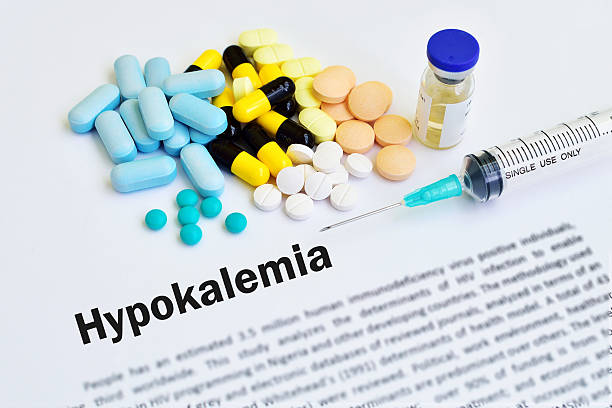Hypokalemia is a medical condition that results from low potassium levels in the blood. Potassium is an essential electrolyte that the body needs to function properly; it helps muscles, heart, cells, and nerves function well, but when there is a deficiency, it is called hypokalemia and can lead to several health problems.
The normal range for potassium in the human body is 3.5 to 5.0 mEq/L; when it is below 3.4 mEq/L, there is a deficiency that needs to be treated.
Causes
There are many reasons a person can have low potassium levels. Still, it is usually because too much potassium is leaving your body, which can indicate an underlying problem.
The common ways people get hypokalemia are through:
- Too much vomiting.
- Kidney or adrenal gland problems.
- Diarrhea.
- Water pills or diuretics.
Some other possible causes of hypokalemia include
- low potassium diet.
- Folic acid deficiency.
- Diabetic ketoacidosis.
- Drinking too much alcohol.
- Some asthma medications.
- Certain antibiotics.
- Sweating a lot.
- Laxatives taken over a long period.
- Low magnesium.
- Eating disorders.
Some syndromes can also be associated with hypokalemia, such as
- Bartter syndrome.
- Cushing’s syndrome.
- Liddle syndrome.
- Gitelman syndrome.
- Fanconi syndrome.
Symptoms of Hypokalemia
The common symptoms of low potassium include:
- Heart palpitations.
- Constipation.
- Tingling and numbness.
- Muscle weakness and spasms.
- Extreme tiredness.
For more severe potassium deficiency, the symptoms may include
- Muscle cramps.
- Hypotension (low blood pressure).
- Muscle cramps.
- Severe muscle weakness, which can lead to paralysis.
- Arrhythmias (abnormal heart rhythm).
- Lightheadedness.
- Polydipsia (excessive thirst).
- Polyuria (excessive urination).
Treatment
Hypokalemia is treated with potassium supplements, which are taken by mouth. However, it is administered intravenously in severe cases, such as when the condition is life-threatening and affecting the heart rhythm and when the oral supplement does not work.
If the hypokalemia is caused by an underlying condition, then the condition will have to be treated separately, and if it is caused by diuretics, the patient will be advised to stop taking the medication. However, do not take potassium supplements without consulting a doctor; it might lead to hyperkalemia.



